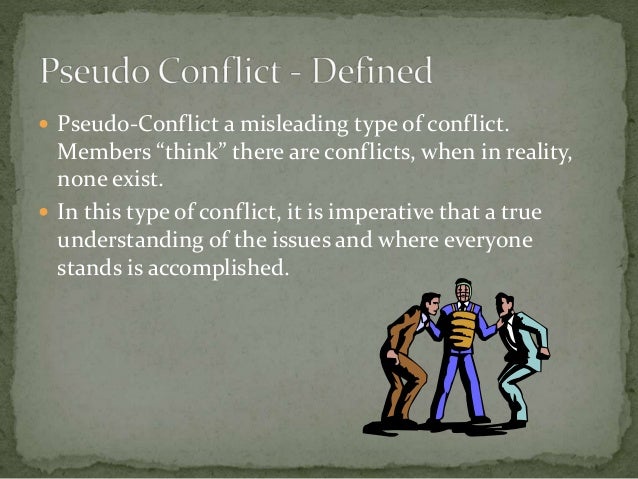Tim Keller is one of the contemporary pastors/writers I really respect. I don’t think I elevate him to any lofty position he shouldn’t have (I strongly believe that only Christ should be elevated and everyone else ought to be kept on the ground), I do appreciate and look to the wisdom he shares. I think he has a lot of it.

And that, in turn, cause me a great deal of surprise when I saw how many people were fighting with him on Twitter. Keller posts a lot on Twitter. I don’t know if the things he posts are quotes from his writings or new ideas. I don’t know if there is a unifying theme he is trying to achieve with his tweets or if he is just tossing out random notions. But I know that almost every time I have checked, someone is disagreeing with him about something. I try not to read comments; I learned pretty quickly that the comment section of any article, post, or tweet is likely to be a cesspool that will bring unhappiness into my life. But I can’t help myself sometimes. There are many times when I want to see how others are responding to Keller’s words, and there are just as many times when I see that they are responding badly, that they are disagreeing with what he said, fighting with what he said, even castigating him for what he said.

Again, I don’t elevate Keller. He is a man, and as Galatians 2 shows us, even good men make mistakes and/or fall into errors. He is not infallible (I doubt he would claim he is) and he not above disagreement. So it is not the disagreement that bothers me so much. It is the fact that so many Christians (not the atheists, whom we would expect to cross swords with him, but the Christians, the disciples, the genuine followers of Christ) disagree with him. And it is not just that the Christians disagree with him but that they disagree with him (and fight with him, and castigate him, etc.) in an illegitimate way. It is often the case that they disagree not with what he says but with their own concocted bizarre twisting of what he meant, with some far-flung application of his words which was never what he intended to communicate.
What these Christians are not doing is what I call “listening for agreement”, by which I mean listening for what you agree with/is good not for what you disagree with/is bad. I’m not sure where I got that phrase “listening for agreement”, but I’m fairly confident I got the idea from Stephen Covey’s The 7 Habits of Highly Effective People.

I may have read this book in my latter years of Bible college, or I may have read it when a teacher at the high school close to my first church gave it to me. In either case, I read it. In it, I learned that one of the seven habits is “Seek first to understand, then to be understood”.

This, I believe, is what the Christians who are fighting with Keller (or any similar Christian teacher in any similar situation) are not doing. They are not trying to understand what Keller is saying and how he expects it to be applied. They are allowing themselves to misunderstand or, worse, concocting some possible misunderstanding. That is ineffective, a Covey suggests. That is counterproductive. That is a missing of truths and a ruining of fellowship and a muddying of the waters and a dozen other undesirable things.
And it is also unbiblical. I can imagine many of the same people who will fight with what Keller says on any given subject will fight me here, and a particular avenue for such a fight is to point out that Covey is not God and The 7 Habits is not Scripture. True enough. Seek first to understand is not a biblical phrase, nor is listening for agreement. But here are a few that are biblical:


There are several others as well. The Bible repeatedly tells us to listen and to not argue. When we refuse to do that even in the cyber realm, when we ignore (unintentionally or otherwise) the good thing a fellow believer is trying to share and twist it into a bad thing and then argue ad nauseum about it, we are doing exactly what the Bible tells us not to do.
I’m not trying to defend Tim Keller, my friends. I don’t think he really needs my help on this one or any other. I’m not trying to defend any Christian teacher. I’m trying to defend Christian unity and effectiveness. I’m trying to find the way for God’s Kingdom to come and His will to be done. I know that way does not involve psuedo or ego conflicts (which is what a lot of these online arguments are; they are not genuine or “simple” conflicts; they are misunderstandings at best and personality or jealousy at worst).

Even Jesus couldn’t stop people from distorting His words and His applications into something He never intended. No contemporary Christian teacher is going to be able to stop people from doing so, either. The only thing which can stop this is the people themselves. And we Christian people should be willing and able to do just that. We should be able to be quick to listen and slow to anger (or maybe “righteous indignation”). We should seek first to understand (even giving the benefit of the doubt when it is necessary to interpretation). We should listen for agreement, not for disagreement.

 This guy was dishonest; he was resorting to deception. If he had said, “I want to argue the Trinity,” I would have said, “Thanks, but no thanks,” and went my way without investing my time. I’m not interested in argumentation. I don’t think Kingdom workers should be interested in argumentation. This guy should have been open and honest about what he wanted/wanted to do. So should we all. I can remember countless times in Bible college when we were taught to be similar dishonest in our approach. We were told, “Here’s how you get Jehovah’s Witnesses” or given little tricks to trip people up. That’s not what Christ did; He set forth the truth plainly, as Paul says here. We should do likewise and do nothing but.
This guy was dishonest; he was resorting to deception. If he had said, “I want to argue the Trinity,” I would have said, “Thanks, but no thanks,” and went my way without investing my time. I’m not interested in argumentation. I don’t think Kingdom workers should be interested in argumentation. This guy should have been open and honest about what he wanted/wanted to do. So should we all. I can remember countless times in Bible college when we were taught to be similar dishonest in our approach. We were told, “Here’s how you get Jehovah’s Witnesses” or given little tricks to trip people up. That’s not what Christ did; He set forth the truth plainly, as Paul says here. We should do likewise and do nothing but. Based on a holistic reading of Scripture (which include the many Scriptures which directly call Jesus God in some way or describe Him as having the qualities of God), I think something like the Trinity must be true. But I can’t explain that. I’m not sure I can defend it. I’m not sure I fully understand it. And it is very uncomfortable and unfair for someone to try to force me to take some side on it, particularly as they are getting increasingly irate. Besides that, it ultimately doesn’t matter. Salvation/the walk with God/the life of faith is not based on what you are able to understand about God (thankfully!). It is based on whether you accept that Jesus is the Christ, the Son of the Living God. I can do the one without doing the other. I have and am doing the one without doing the other (or while doing the other to the best of my ability). Based on what we see in Scripture, that seems to be enough for God. It should be enough for you, too.
Based on a holistic reading of Scripture (which include the many Scriptures which directly call Jesus God in some way or describe Him as having the qualities of God), I think something like the Trinity must be true. But I can’t explain that. I’m not sure I can defend it. I’m not sure I fully understand it. And it is very uncomfortable and unfair for someone to try to force me to take some side on it, particularly as they are getting increasingly irate. Besides that, it ultimately doesn’t matter. Salvation/the walk with God/the life of faith is not based on what you are able to understand about God (thankfully!). It is based on whether you accept that Jesus is the Christ, the Son of the Living God. I can do the one without doing the other. I have and am doing the one without doing the other (or while doing the other to the best of my ability). Based on what we see in Scripture, that seems to be enough for God. It should be enough for you, too.